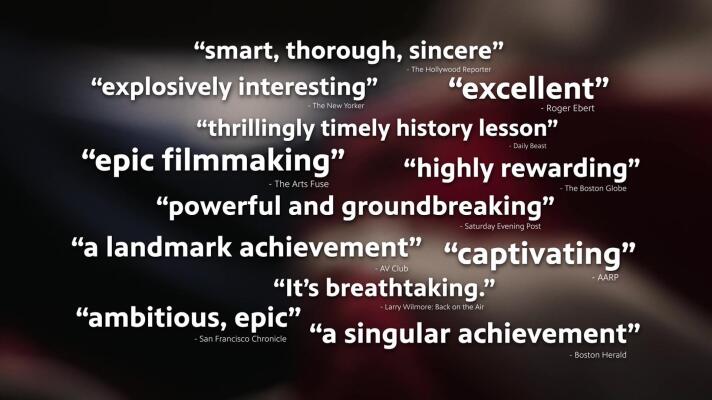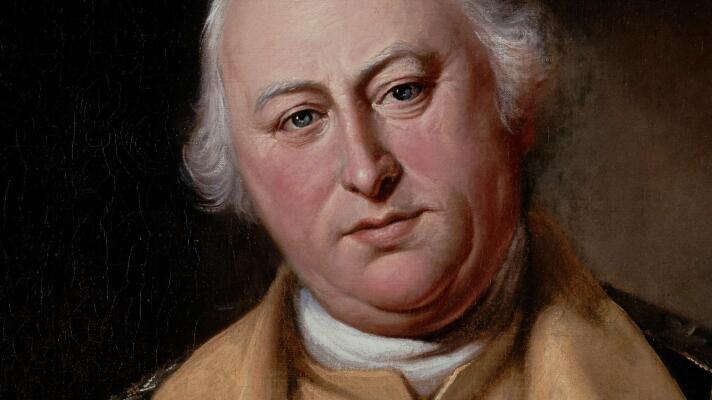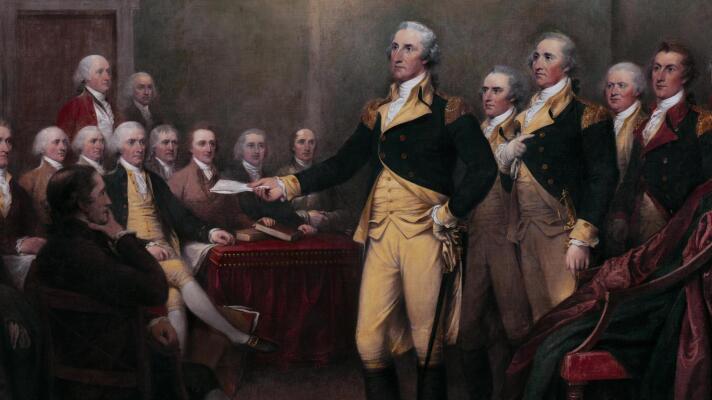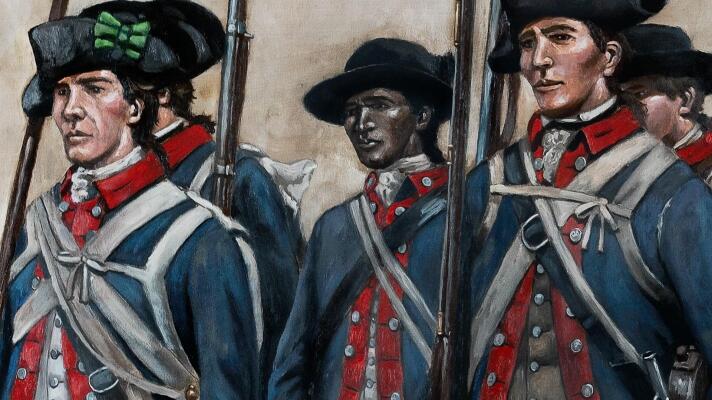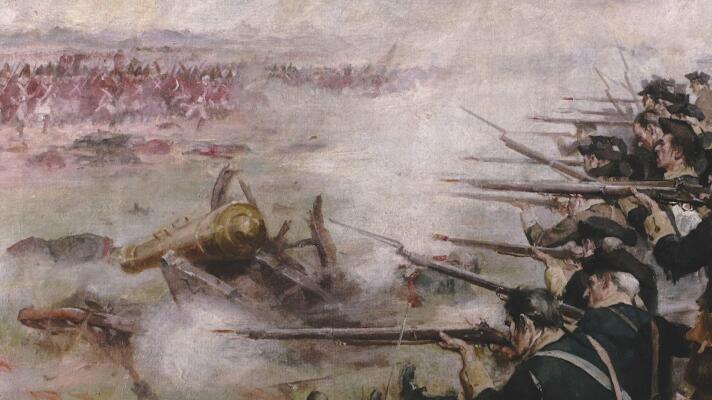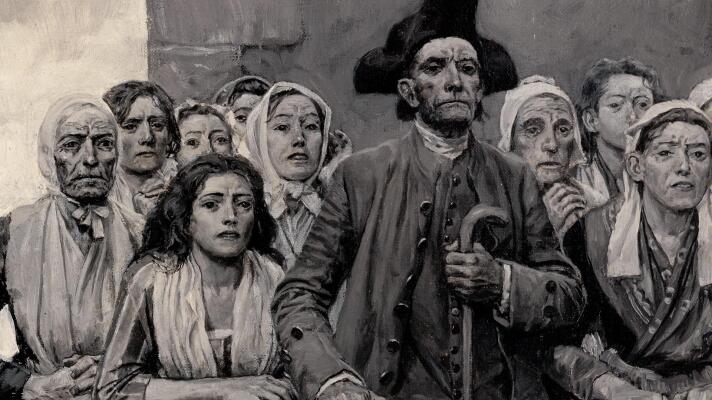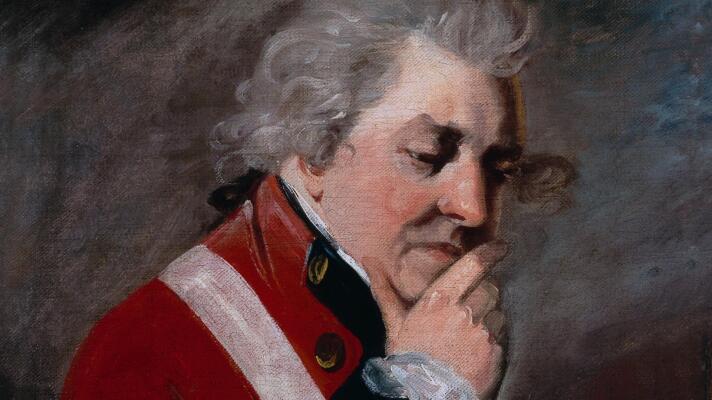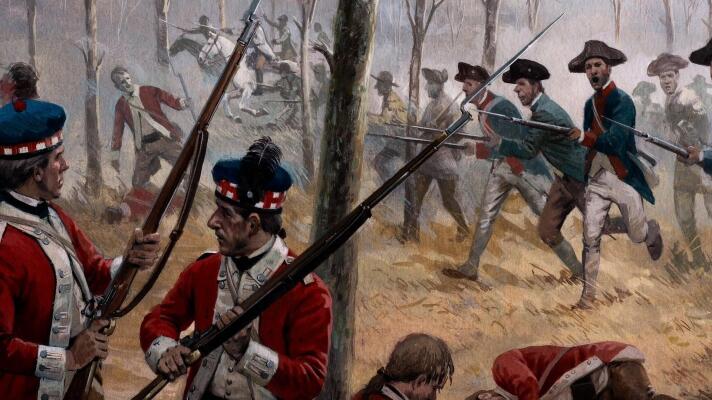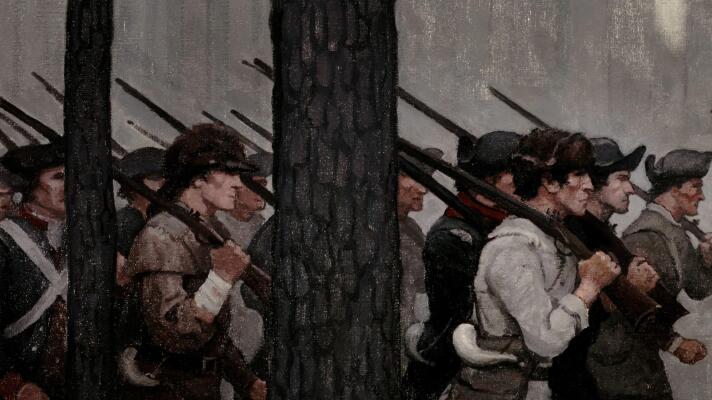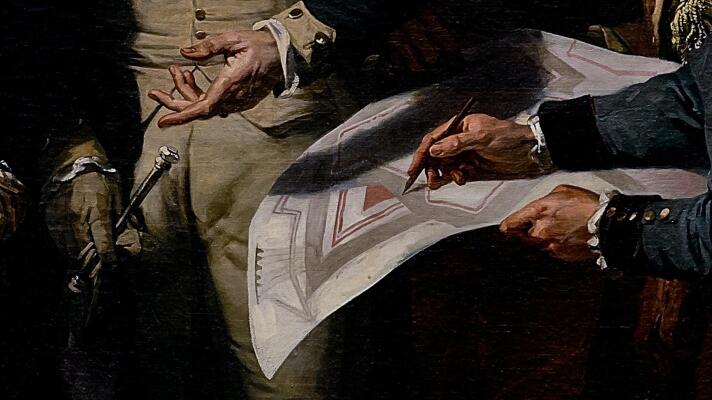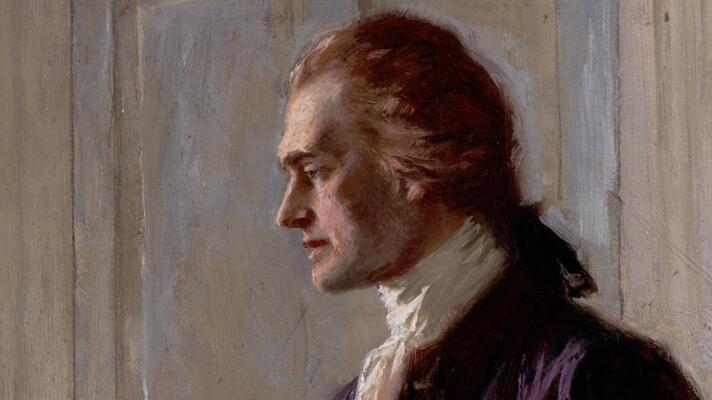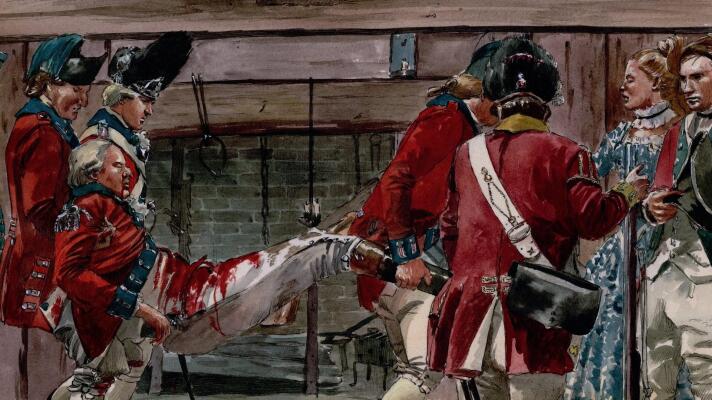Latest Episodes
Victory at Yorktown secures independence. Americans aspire for a more perfect union.
Episode:
S1
E6
|
2:10:41
The war drags on and moves to new theaters: at sea, in Indian Country, and in the South.
Episode:
S1
E5
|
1:53:53
Philadelphia falls, but the American victory at Saratoga allows France to enter the war.
Episode:
S1
E4
|
1:55:38
Washington abandons New York City and flees across New Jersey, before attacking Trenton.
Episode:
S1
E3
|
1:54:35
Washington takes command of the Continental Army. Congress declares American independence.
Episode:
S1
E2
|
2:04:18
Political protest escalates into violence. War gives thirteen colonies a common cause.
Episode:
S1
E1
|
1:56:09
Specials
Step behind the scenes of Ken Burns’s new film to see how The American Revolution came to life.
Special:
Exploring the American Revolution.
Special:
Extras
"Explosively Interesting" - critics agree The American Revolution must-watch TV.
Preview:
0:30
Historian Stephen Conway on the psychological impact of Saratoga on the British.
Clip:
S1
E4
|
0:33
A single shot echoes on Lexington Green, and the American Revolution begins.
Clip:
S1
E1
|
0:43
A spark ignites—quiet, unstoppable. What follows changes everything.
Clip:
S1
E1
|
0:50
With Washington commanding less than 3,000, the winter of 1777 became a fight over supplies.
Clip:
S1
E4
|
0:59
Ken Burns, Sarah Botstein, and David Schmidt on the challenges of telling America's origin story.
Clip:
6:18
George Washington discovers that Benedict Arnold has abandoned his post and defected to the British.
Clip:
S1
E6
|
6:04
Daniel Morgan leads the British into a trap, securing a crucial victory for the Patriots.
Clip:
S1
E6
|
6:41
The American Revolution has spilled into a global war, but the United States hangs on by a thread.
Clip:
S1
E5
|
5:56
The Continental Army engages the British in the last major battle in the North of the Revolution.
Clip:
S1
E5
|
8:56
After days of fighting at Saratoga, Benedict Arnold and Horatio Gates secure a Patriot victory.
Clip:
S1
E4
|
8:59
Thousands poured down the Great Wagon Road, eager to start a new life in North America’s interior.
Clip:
S1
E1
|
2:56
Cherokee chief Tsi'yu-gunsini, Dragging Canoe in English, fights against Patriot settlers.
Clip:
S1
E3
|
5:48
The Continental Congress meets to debate and adopt the Articles of Confederation.
Clip:
S1
E3
|
6:14
General Clinton ambushes George Washington in the largest battle of the American Revolution.
Clip:
S1
E3
|
6:10
Horatio Gates and Benedict Arnold rush to stop the British sailing down Lake Champlain.
Clip:
S1
E3
|
5:46
The Continental Army threatens to unravel while suffering harsh winter conditions at Valley Forge.
Clip:
S1
E5
|
4:26
Spain joins the war, but not as an ally of American independence – as an enemy of Britain.
Clip:
S1
E5
|
5:43
The Six Nations of the Haudenosaunee choose opposing sides at the Battle of Oriskany.
Clip:
S1
E4
|
8:07
Washington uses bonuses and drafts to encourage Americans to join the Continental Army.
Clip:
S1
E4
|
4:31
The British surround and siege Charleston, South Carolina, one of the largest cities in America.
Clip:
S1
E5
|
4:44
The filmmakers on how they tapped a broad range of influences to recreate the music of the era.
Clip:
5:13
The filmmakers discuss how the story of The American Revolution came together.
Clip:
3:57
Filmmakers discuss how they used stories of both well-known and lesser known figures.
Clip:
10:33
Outnumbered and surrounded, General Charles Cornwallis surrenders, ending the American Revolution.
Clip:
S1
E6
|
10:44
The American Revolution is over, and delegates convene to create a new system of government.
Clip:
S1
E6
|
7:17
The filmmakers on how understanding the people of the Revolution can help us understand who we are.
Clip:
3:37
Most revolutionaries were Protestants, but there were also Catholics, Jews, and Muslims.
Clip:
S1
E4
|
2:05
General Horatio Gates' force clashes with the British, beginning the Battle of Saratoga.
Clip:
S1
E4
|
6:18
The British seize Philadelphia, but Washington plans to retake the city at the Battle of Germantown.
Clip:
S1
E4
|
6:29



